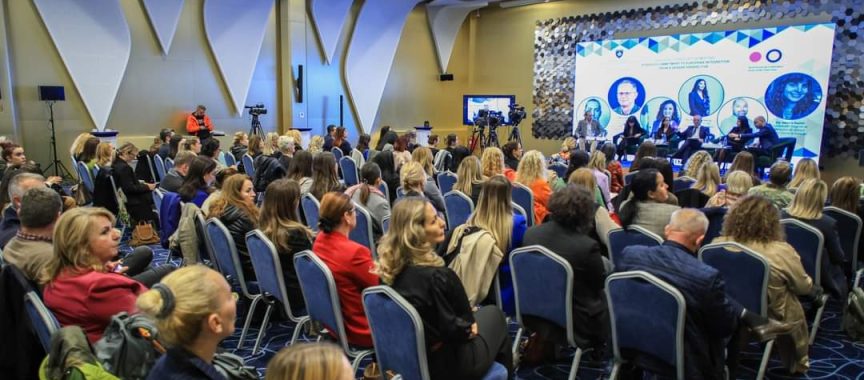Prishtina, 10 November, 2023
The first Deputy Prime Minister for European Integration, Development and Dialogue of the Republic of Kosovo, Besnik Bislimi, was today part of the panel at the regular high-level annual consultative meeting, the sixth in a row, with institutional actors, experts and representatives from civil society.
Organized by the Agency for Gender Equality (AGE), within the Prime Minister’s Office, in cooperation with the Kosovo Center for Gender Studies (KKSGJ), this meeting this year focused on Kosovo’s commitment to the European Integration process from a gender perspective.
The complete speech of Deputy Prime Minister Bislimi:
Dear President Krasniqi,
Dear MP Fejza,
Dear Ms. Rashitaj,
The honorable Mr. Hoxha,
Dear Ambassador Barisic,
Dear panelists,
It is also a special honor for me that you have offered me the opportunity to be part of this panel where we discuss Kosovo’s commitment to European integration, from a gender perspective. For me, the title means firstly that the fair treatment of the gender perspective is a prerequisite for successful European integration, and secondly it means that setting the gender perspective as a priority brings us additional benefits within the framework of European integration and the third which is the most important the gender perspective has not been dealt with properly and is therefore seen as a problem. We need to address the gender perspective in our journey towards the European Union. I think that a problem can be solved if four prerequisites are met:
First, we can only solve a problem that exists. The fact that we are addressing the gender perspective towards European integration means that we have a serious problem with gender inequality or not paying enough attention to the gender aspect in the construction of our policies. Second, I think it is a prerequisite for our awareness of the existence of this problem. But this is not enough if we are not willing to address it. And fourthly, we do not have the ability to allocate the financial and human resources to deal with the construction of policies and their implementation so that this gap in inequality, if it cannot be eliminated, at least be reduced to acceptable dimensions for society.
I believe that the problem of inequality that we face is neither a voluntary problem nor is it exogenous. It is not an imported problem and it is not something that one of the sexes has voluntarily chosen. In this context, I think that we do not have a strong signal that we are ready to face this problem, when over 90% of the participants here are women, because the impression is created that it is a voluntary problem and we are meeting without how we will change our approach, so that we can get out of this trap we are in.
I think that women are the least responsible for the situation we are in, therefore the composition of the panel should probably have been seen in the composition of the participants in the debate, to see that if not a primary problem of the male gender, it is now a common problem of our society and which we can address only together.
The elimination of inequality in Kosovo must be achieved in several stages, where the initial and most important stage is the empowerment of women within the family. I think that’s where the inequality starts, which then starts as a norm and is seen as something acceptable even for society. In recent years, we have seen the empowerment of women within the family as a priority. There is the law for free legal aid, some strategies for preventing domestic violence, addressing domestic violence, additional budget allocations for addressing domestic violence and care for family members who have been subjected to domestic violence, so there are some measures through which we have tried through our strategies and decisions to empower women within the family. At the same time, and with financial interventions, such as child allowances that are paid into the mother’s bank account, maternity allowances that are also paid to women who have not been able to enter the labor market, these show that we have pretty much as a priority the empowerment of women within the family.
The second step that I consider very important is the empowerment of women in economic life. Here too, there are some dimensions that must be treated completely differently from each other. For example, women’s empowerment can be done first through increasing women’s participation in economic life so that as many women as possible achieve economic independence or contribute to the generation of additional income for family households. This can be done directly through employment policies or active employment measures, but also indirectly
As an example, even the construction of the nursery has a direct and indirect effect. Directly because almost 100% of employees in daycare centers are women, but there is also an indirect effect because every family that sends their children to daycare centers has additional time to enter the labor market directly, or to follows professional training or qualifications that increase his ability to find a job. Then, in addition to the construction of nurseries, an additional contribution to society can be made if all nurseries are exempted from the obligation to pay value added tax, for the reason that this makes it more attractive to send children to nurseries and to employ women additional in this sector.
Meanwhile, through active employment measures, those categories that are more faced with this problem can be attacked, I think that with the measures of the government in the last two years, we have had an enormous impact on reducing this gap. We have provided additional scholarships mainly for girls, with priority for those from rural areas so that their ability to find work increases enormously, but we have also provided support for any employment offered to women.
We have done additional empowerment on the other hand, through the empowerment of women in economic decision-making, through measures that target, either in agriculture, start-up, existing economic activities, for businesses that are owned by women. The support has been direct through grants, indirect through subsidizing interest rates, providing additional facilities in each case when the owner is a woman, and through measures that then empower women in business, increasing access to property. The progress report states that by 2022 alone, the number of properties transferred within the year to women has quadrupled. Somewhere between 1,500 and approximately 7,000 properties have been transferred to women by 2022 alone. Within the possibilities, I think that we have never done little, and as long as we meet to discuss the solution to the problem of inequality, it seems that we have not done enough to remove this problem from the agenda.
Another element, where we think we need to do a lot is empowerment in decision-making, this is done through the promotion of policies but also trainings that empower the growth of women within, let’s say, the internal labor market within public enterprises, but also within the public administration towards decision-making positions.
But this is done indirectly through the fight against stereotypes, for example I have seen a study done by the Ri-Invest Institute, where it is said that somewhere around 50% of women have little or no interest in being promoted in the workplace.
But if we come to see the reasons why they are not interested, because some of them believe that the chances that they can be promoted are smaller, this needs time to be addressed, to change the stereotypes, either in employment, either in the initiatives to rise in the career, but also in the decision-making for the choice of professions in the career. The scholarships we offer for the STEM category mainly have this goal, to break the stereotypes that these professions are not for women.
Another activity, where we think we should engage in the fight against inequality, and this problem, as the president also pointed out that the problems of inequality are not only a problem encountered in underdeveloped countries but also exist within the countries of the European Union, we yesterday we also discussed some protests that took place in Iceland to address this problem, the gap in wages.
I think that Kosovo is a little worse here than other countries and it should be seen to what extent we can build policies that address the wage gap that exists on a gender basis.
Even the last part, which I think MP Fejza addressed very well, has to do with increasing opportunities, increasing the participation of women in political life, in political decision-making, I think that we have done very well here. If you see the percentage of women in political life in Kosovo, I’m talking mainly about the central level, because I think at the local level we are not good, but at the central level we surpass some countries within the European Union. And here I think that the Vetëvendosje Movement has also made a sufficient contribution through political life in the Assembly, but also in governance. For example, in the Assembly, I calculated today that out of 17 leadership positions, the Speaker of the Assembly, the Deputy Speaker of the Assembly, the Chairman of the Parliamentary Group, the heads of the committees, the vice-chairmen of the committees, out of 17 leading positions, in the Vetëvendosje Movement 9 are held by women, even though only 38 percent of the positions of deputies are held by the women of the Vetëvendosje Movement, but in leadership positions they have some 56 percent of the positions. This shows that we are giving our contribution so that these problems become as secondary as possible, that is, they come to the fore.
But even in the government, if you look at the Government of the Republic of Kosovo, we have two female deputy prime ministers, one male, while the main resources of the state are the economy, trade, industry, education, at one time also health, foreign policy, justice, are led by women and I think I can proudly say that they are doing an extremely excellent job. But, even behind the work that we and other ministers do, the main work is done by the heads of the cabinets, most of whom we have women, who are actually real ministers within our cabinets.
Thank you very much once again for the opportunity.
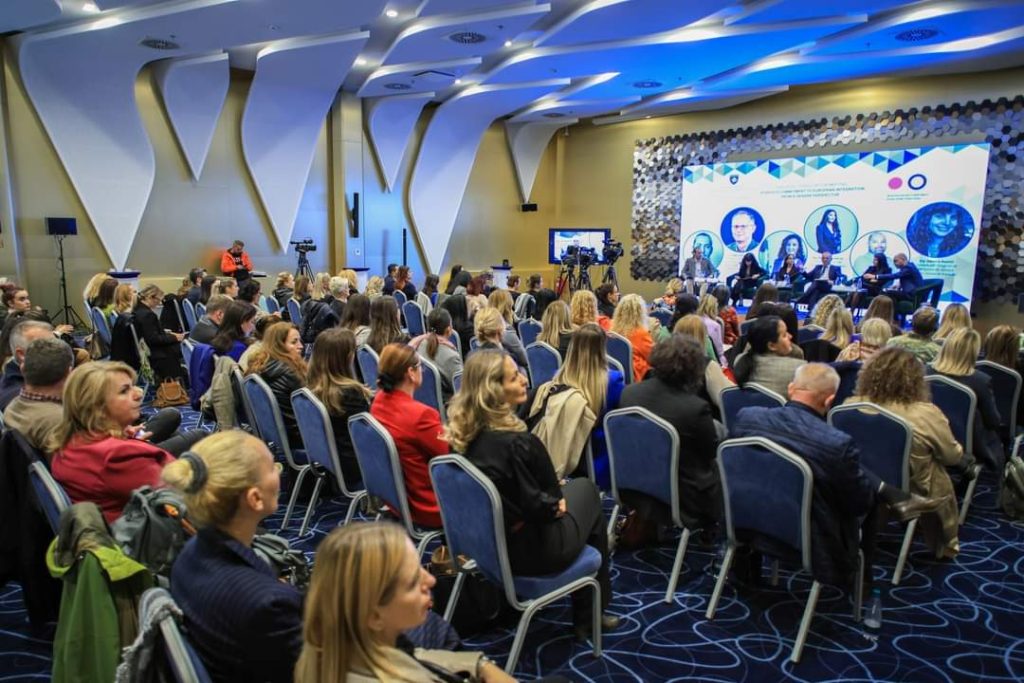
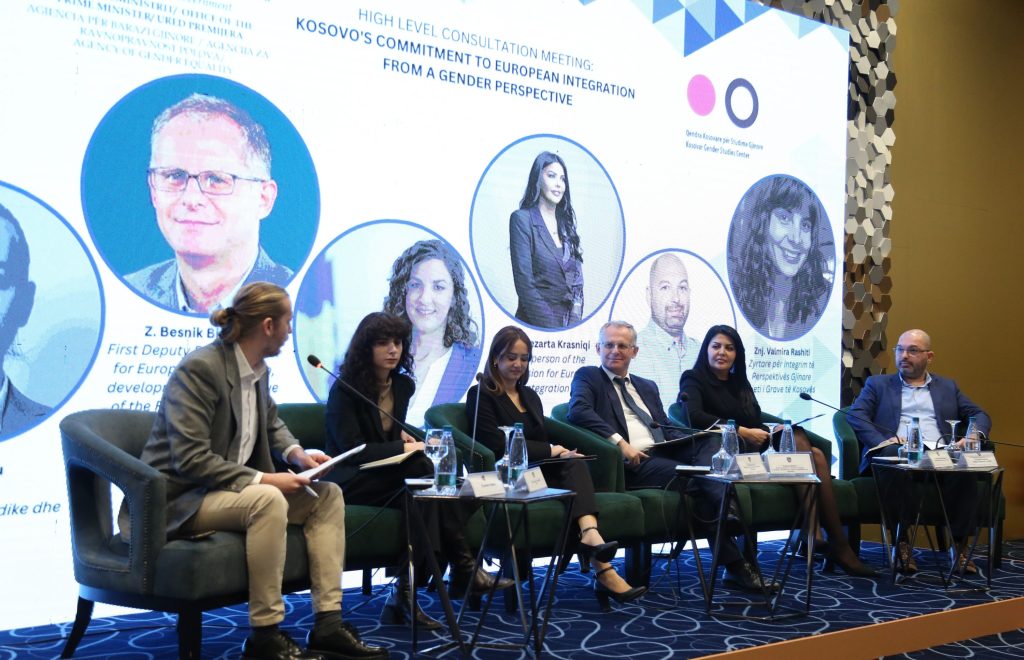
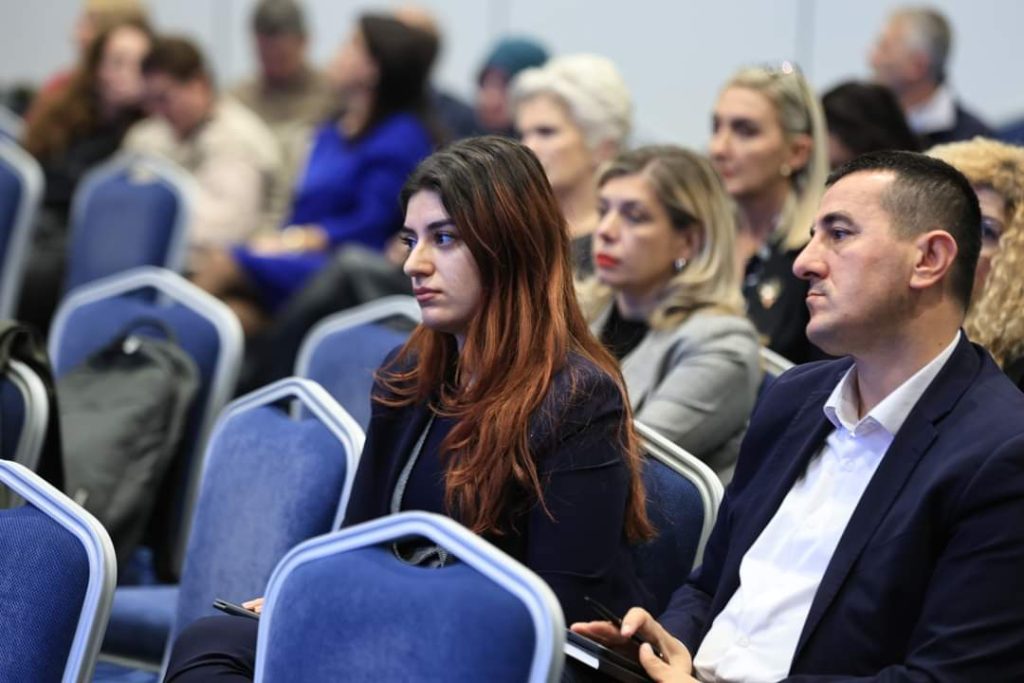
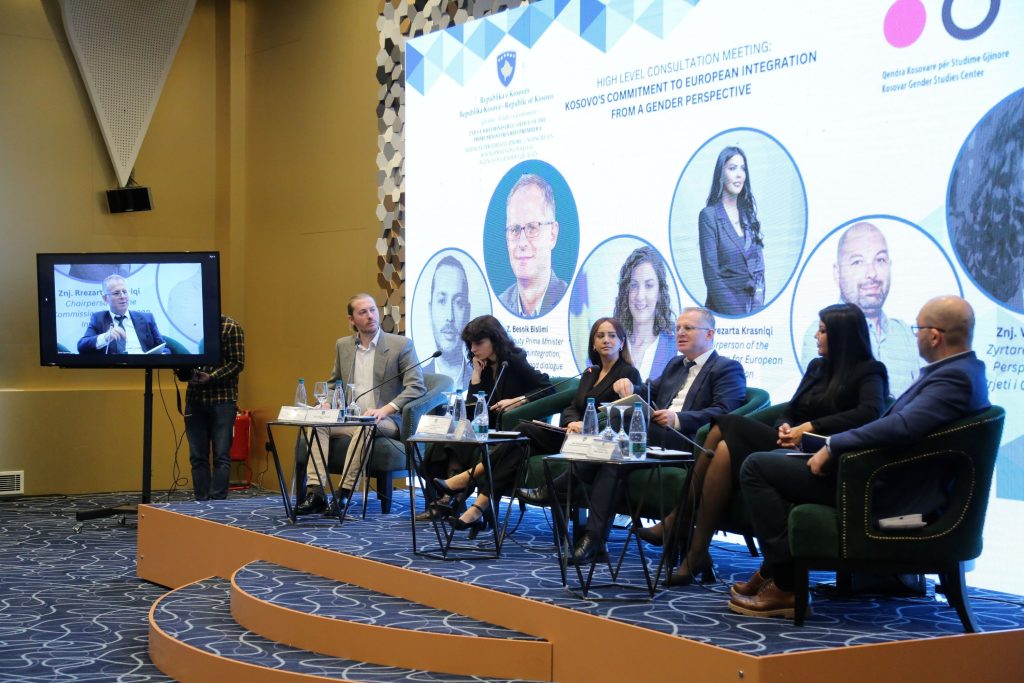
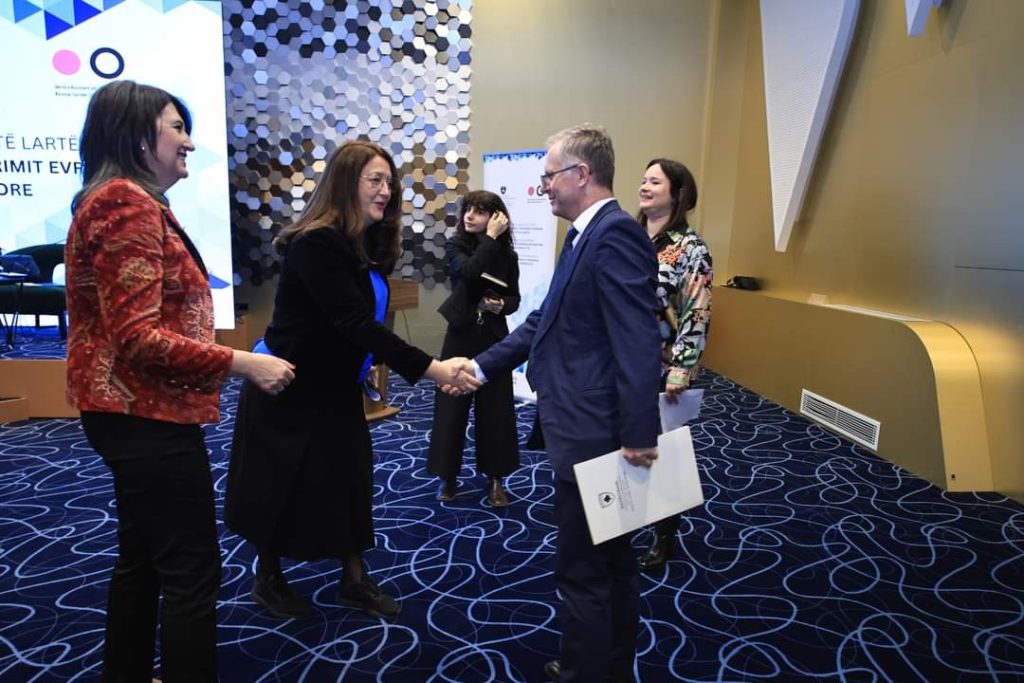
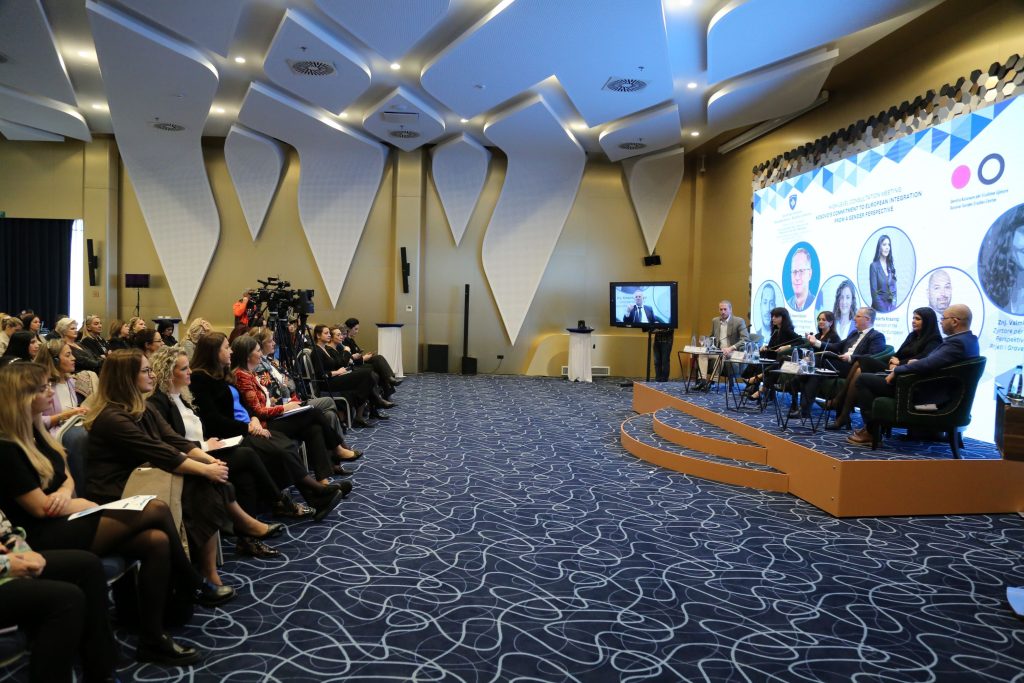
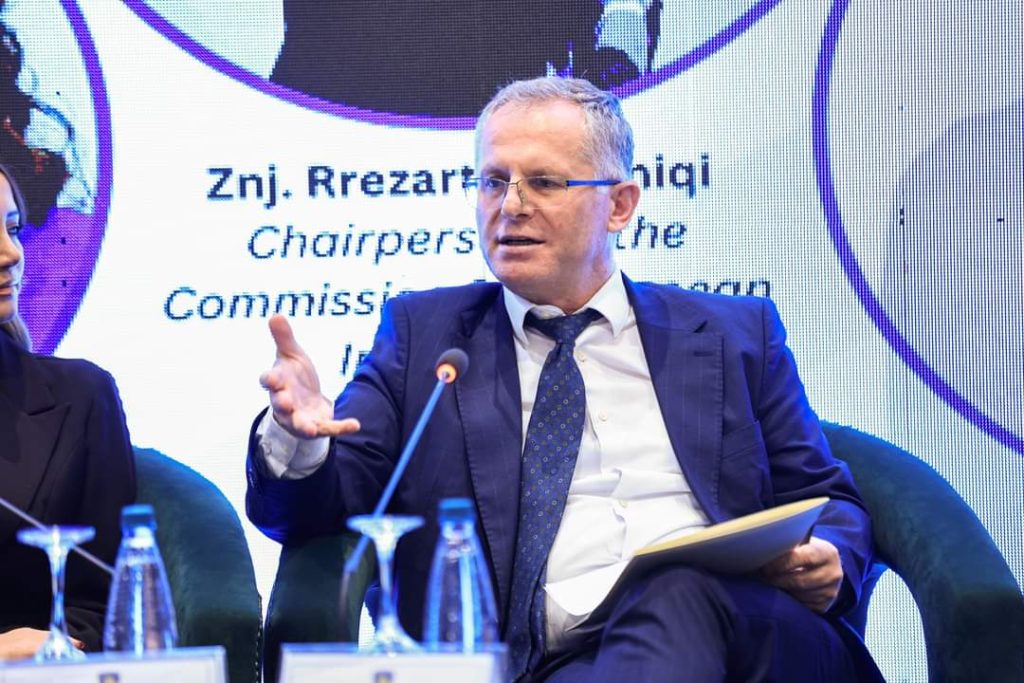



Last modified: December 8, 2023
